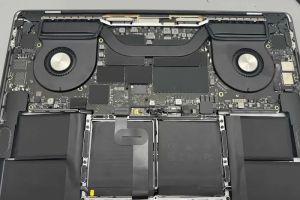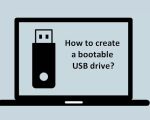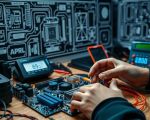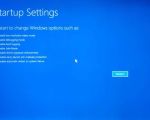How to Repair a Computer: A Complete Guide for Troubleshooting and Fixing Issues
If you’ve ever encountered a computer that suddenly stops working or starts acting up, you know how frustrating it can be. As a long-time computer user, I’ve had my fair share of moments where I had to figure out how to repair a computer on my own. From slow performance to mysterious crashes, fixing a computer can feel overwhelming. But fear not! In this guide, I’ll walk you through the essential steps on how to repair a computer, offering tips and tricks that I’ve learned over the years. Whether you're dealing with a frozen screen, malfunctioning hardware, or software issues, understanding the root causes of computer problems and knowing how to fix them can save you time and money. Let's dive in and learn how to troubleshoot and repair your computer effectively.
- 1. Diagnosing the Issue
- 2. Checking for Software Problems
- 3. Inspecting Hardware Components
- 4. Repairing or Replacing Faulty Parts
- 5. Preventive Measures to Avoid Future Issues
- 6. When to Seek Professional Help
1. Diagnosing the Issue
Before diving into the nuts and bolts of computer repair, it’s important to understand what the issue is. In my experience, diagnosing the problem is the first and most crucial step. I once spent hours fixing an issue, only to later realize it was a simple software glitch rather than a hardware malfunction. Here are some common signs that can point to specific issues:
- Slow Performance: If your computer has become sluggish or unresponsive, it could be due to a number of reasons—too many background processes running, a lack of storage space, or a malware infection.
- Frequent Crashes or Freezing: These are often caused by software bugs, hardware failures, or overheating. Crashes usually happen when a program encounters an error, or the computer struggles to process too many tasks at once.
- Weird Noises: If your computer starts making strange noises, especially from the hard drive or fan, it could indicate failing components.
- Unresponsive Keyboard or Mouse: This can happen if the device drivers are outdated or corrupted, or there may be an issue with the hardware itself.
By understanding the symptoms, you can narrow down the possible causes. Sometimes, the issue might be minor and solvable with just a quick fix. However, for more complex problems, further investigation is necessary.

Action Computers Inc. -- Denver Location
2890 S Colorado Blvd F, Denver, CO 80222, USA
2. Checking for Software Problems
Once you've diagnosed the issue, it’s time to determine whether the problem is related to software or hardware. In my case, I’ve found that software problems are often easier to fix, but they still require careful attention. Here are a few steps you can take to troubleshoot software-related issues:
- Update Your Operating System: An outdated operating system can cause performance issues, security vulnerabilities, and bugs. Always ensure your OS is up-to-date. I make it a habit to regularly check for updates to avoid any problems.
- Check for Malware or Viruses: Malware is one of the leading causes of slow performance and system errors. I use reliable antivirus software to run a full system scan and eliminate any malicious programs.
- Clean Up the Hard Drive: Over time, your computer accumulates junk files that can clog up your system and slow it down. I regularly clean up unnecessary files using built-in tools like Disk Cleanup (on Windows) or third-party software like CCleaner.
- Reinstall or Update Drivers: Sometimes, outdated or corrupted drivers can cause hardware components to malfunction. I’ve had success solving display or printer issues by updating the relevant drivers.
By focusing on software troubleshooting, you can often fix performance issues or resolve software-related crashes without needing to open up the hardware. However, if the problem persists, you may need to check the hardware.

Fix It Computer Repair
2638 Geranium Ln, Fort Collins, CO 80525, USA
3. Inspecting Hardware Components
If you’ve ruled out software issues, the next step is to check the hardware. I’ve had situations where hardware failures were the root cause of a computer problem. Here are some steps you can take to inspect your computer’s physical components:
- Check the Power Supply: If your computer isn’t turning on, the issue might be with the power supply. Ensure that the power cable is properly connected, and check for any visible signs of damage. I’ve once had a faulty power cable that prevented my computer from booting up.
- Inspect the Hard Drive: A failing hard drive can cause crashes and slow performance. I use a hard drive diagnostic tool to check the health of my hard drive. If it’s showing signs of failure, it may be time to replace it.
- Examine the RAM: Bad memory (RAM) can cause crashes and freezes. I use a memory diagnostic tool (like MemTest86) to check if the RAM is working properly. If I find issues, I’ve replaced faulty RAM sticks to resolve the problem.
- Inspect the Cooling System: Overheating can cause crashes and slowdowns. I’ve noticed that cleaning the fan and ensuring proper airflow can prevent the system from overheating and fix performance issues.
If any of these hardware components are damaged, it may be necessary to replace them. Be sure to follow manufacturer instructions or consult a professional if you're not comfortable performing the replacement yourself.
4. Repairing or Replacing Faulty Parts
Once you've identified faulty hardware, the next step is deciding whether to repair or replace the damaged components. In my case, I’ve replaced several parts, including hard drives and RAM, without much difficulty. Here’s how you can go about replacing common components:
- Replacing the Hard Drive: If the hard drive is beyond repair, I suggest replacing it with a new one. Make sure to back up any important data before removing the old drive. A solid-state drive (SSD) is a great upgrade for faster performance.
- Replacing RAM: If you need more memory, or if the existing RAM is malfunctioning, replacing it is fairly straightforward. Just make sure to buy compatible RAM for your system and follow the proper installation steps.
- Replacing the Power Supply: If the power supply is faulty, replacing it requires opening the case and disconnecting the old unit. This can be tricky, so I recommend following the manufacturer’s instructions closely.
While some repairs are simple, others might require advanced knowledge. If you're unsure, it might be time to consult a professional technician.
5. Preventive Measures to Avoid Future Issues
After you’ve repaired your computer, it’s essential to take steps to avoid future problems. I’ve found that regular maintenance can help prolong the life of your computer and keep it running smoothly. Here are some preventive measures I follow:
- Regularly Back Up Your Data: I back up my files frequently to prevent losing important data in case of a system failure. Cloud storage and external drives are both great options.
- Install Antivirus Software: To protect against malware and viruses, I use reliable antivirus software and schedule regular scans.
- Keep the System Clean: I clean my computer’s internal and external components regularly, including dusting the fans and cleaning the keyboard and screen.
6. When to Seek Professional Help
While many computer issues can be resolved through DIY repairs, there are times when professional help is necessary. If you’ve tried all the troubleshooting steps and the problem persists, or if you’re not comfortable working with the internal components of your computer, it’s time to seek professional help. A certified technician can diagnose and repair issues with precision, and in some cases, they may be able to save data that you can't recover on your own.
If you're ever in doubt, don’t hesitate to contact a professional. There are also plenty of online resources, including forums and instructional videos, that can guide you through specific repairs.
Repairing a computer doesn’t have to be intimidating. With the right knowledge and tools, you can fix many common issues on your own and save yourself from costly repairs. However, always be mindful of when it’s time to seek expert help. Ready to tackle your computer issues? For more guidance and professional repair services, check out [Computer Repair] for expert assistance!





























